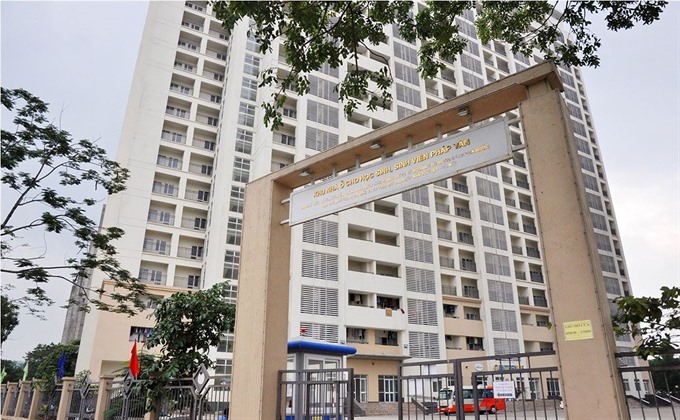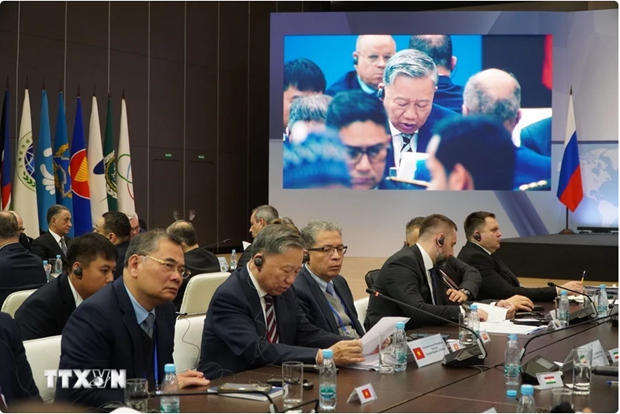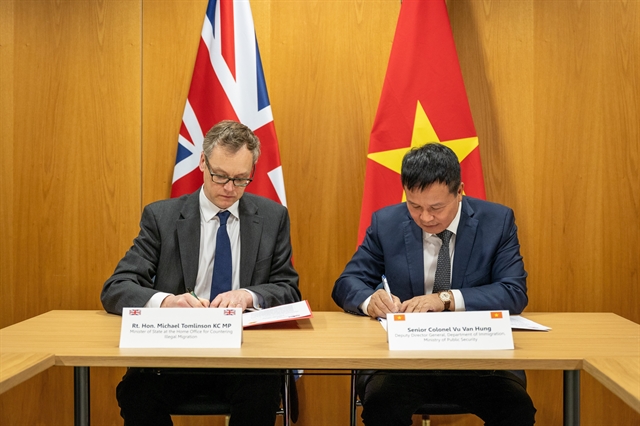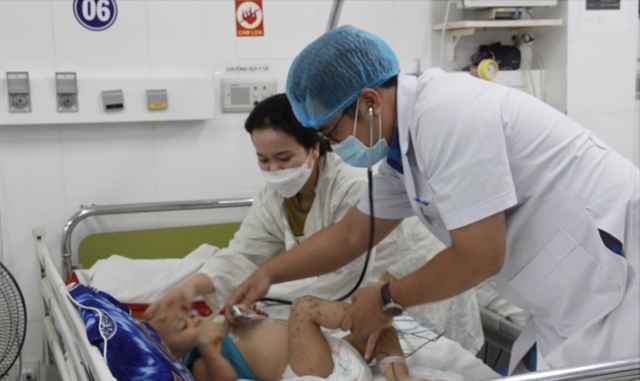 Society
Society

While a student condominium project has been halted due to a capital shortage, plans to give it a second life as a social housing complex have run aground due to the failure of Hà Nội authorities and the Ministry of Construction to compromise.
 |
| A view of the Pháp Vân – Tứ Hiệp student complex in Hoàng Mai District. — Photo baodauthau.vn |
HÀ NỘI — While a student condominium project has been halted due to a capital shortage, plans to give it a second life as a social housing complex have run aground due to the failure of Hà Nội authorities and the Ministry of Construction to compromise.
The Pháp Vân – Tứ Hiệp student complex in Hoàng Mai District comprises six 19-floor condos named A1 to A6. Construction began in 2009. The project was first invested at VNĐ1.5 trillion (US$65.8 million) allocated from the Government Bond, then increased to VNĐ1.9 trillion ($83.4 million) due to price fluctuations. In January, 2015, three buildings of the complex (A1, A5 and A6) were opened, expecting to host up to 10,800 students. However, because the investors could not allocate enough capital, A2 and A3 blocks have been abandoned, even though construction was partly finished.
To avoid waste, Hà Nội Department of Construction proposed to turn the two blocks into affordable homes. According to the department’s data, the demand for social housing in Hà Nội remains high. As of 2015, the city’s social housing development plan only reached 44 per cent of people in need
Despite the shortage of living space for low-income people, Nguyễn Chí Dũng, the department’s deputy director, told the Tiền Phong (Vanguard) that the proposal to turn Pháp Vân – Tứ Hiệp student condos to affordable housing had not yet been approved by the capital authorities.
Experts also warned that the plan may not work because the demands of families and students are different.
Phạm Sỹ Liêm, deputy head of Việt Nam Construction Association, blamed investors for the condos’ failure to attract students.
“I wonder whether they conducted proper research before implementing the project. The financial burden caused by the inefficient project falls on the Government. Therefore, it is essential to also emphasise ethics to strengthen project management,” he said.
Meanwhile, in 2017, Lê Công Hùng, deputy construction minister, said that the social housing fund had not fulfilled people’s demand for accommodation while some condo projects could not attract students. Therefore, the ministry agreed to turn projects into affordable homes but also asked investors to recover the State capital and improve social infrastructure including schools and medical facilities in the neighborhood.
In 2009, when the Pháp Vân – Tứ Hiệp student condo project was announced, some 15,000 university students applied for accommodation. However, in 2017, 70 per cent of completed apartments are vacant. The residency is located in an isolated area; the nearest university is 4km away.
Nguyễn Văn Hoà, a student at Hà Nội University of Construction, is one of the students still living in the complex—but he’s moving out. Besides the unfavorable location, he said, the area is secluded, making him and other residents feel insecure. — VNS









